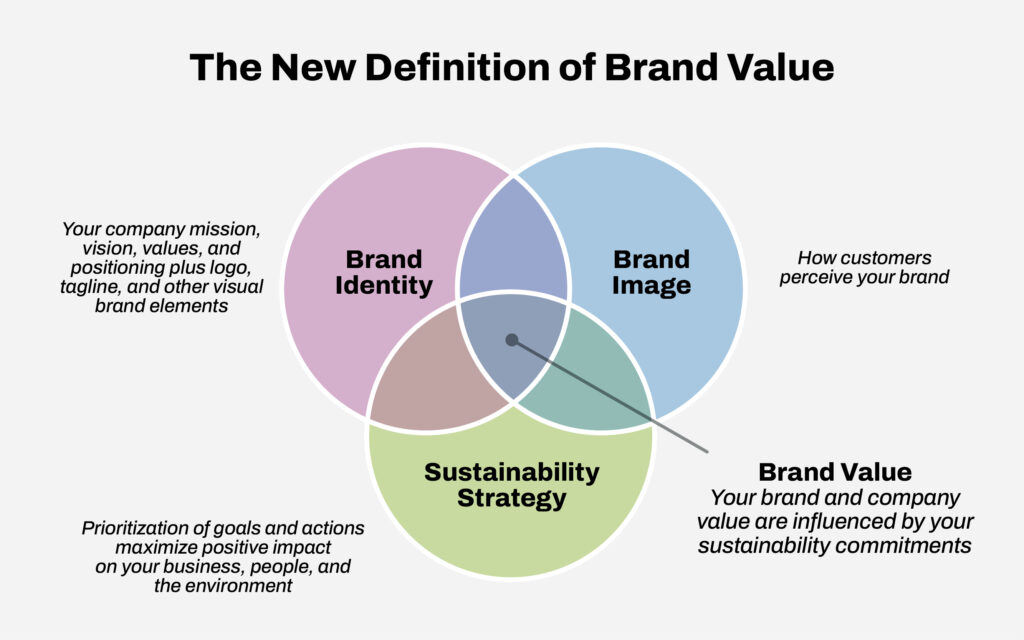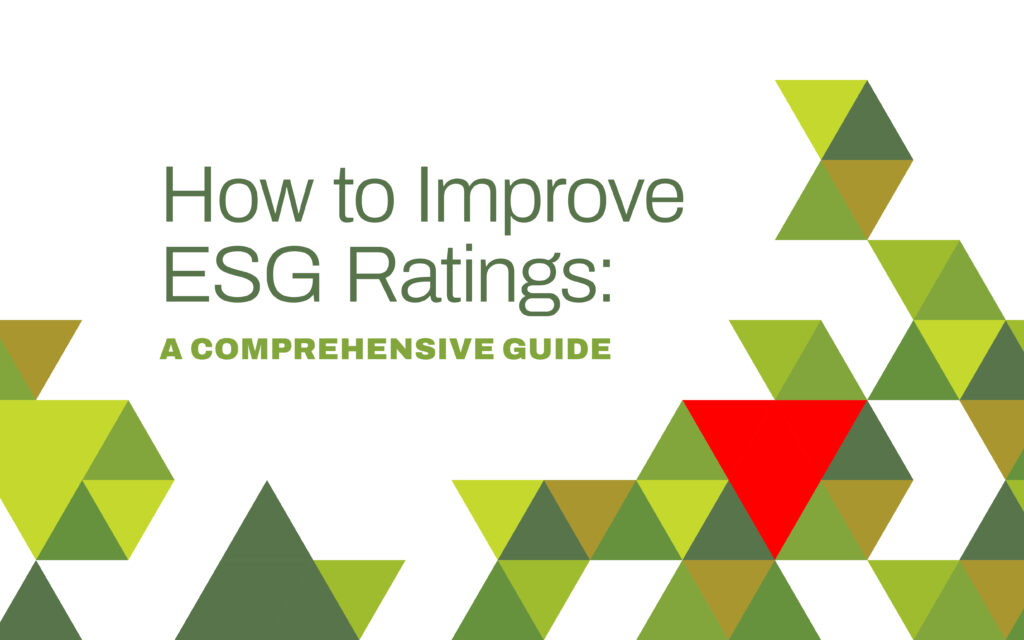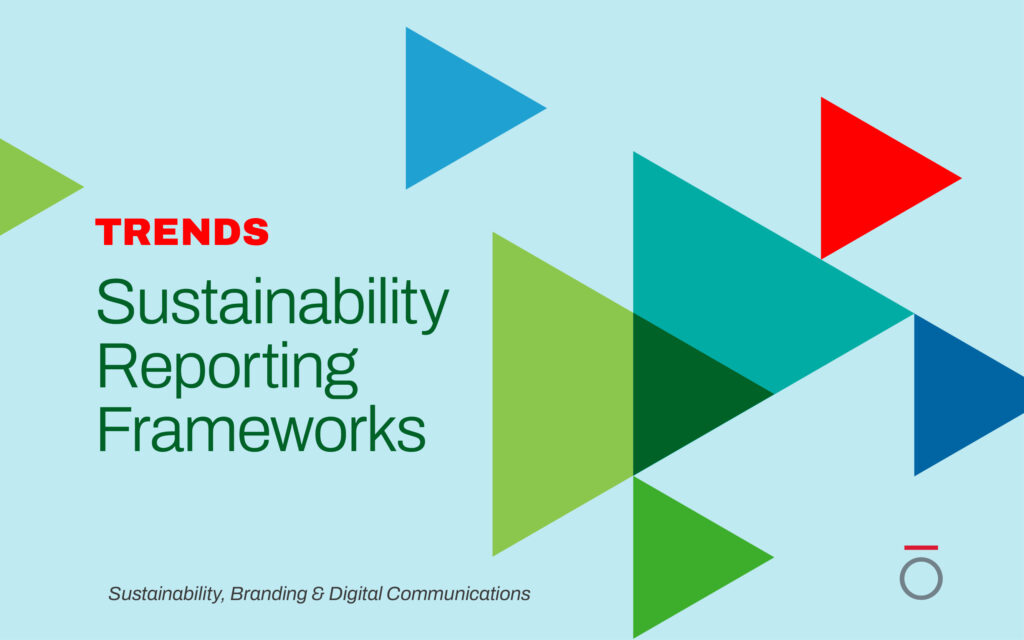How Sustainability Makes Brands More Valuable
Branding, Sustainability & ESG / July 10, 2024
By Paul Gassett, Chief Executive Officer
In the modern business landscape, sustainability has transcended its role as a mere trend to become a strategic imperative for corporate branding.
Today, customers are increasingly conscientious about the environmental and social impact of the brands they support. Not to mention that having a sustainable brand is fast becoming critical for companies seeking merger and acquisition (M&A) opportunities. These are all reasons why integrating sustainability into corporate branding aligns with ethical values and serves as a powerful driver for business success.

When a corporation integrates sustainability into everything they do, it establishes a culture of sustainability that becomes part of its corporate DNA.
This can have positive impacts that resonate throughout an organization and instill a discipline that influences a healthier bottom line, reinforces employee loyalty, and enhances corporate reputation. All of this, in turn, increases the value of the company brand.
This article will explore how incorporating sustainability can make your brand more valuable.
When a corporation integrates sustainability into everything they do, it establishes a culture of sustainability that becomes part of its corporate DNA.
The Rise of Sustainability in Branding
Sustainability in branding has seen a significant rise in recent years. This is due to changing consumer attitudes as well as the realization by corporations that sustainability is not only important to customers, but also critical for its employees, shareholders and overall brand reputation.
Consumers are increasingly demanding that brands take responsibility for their environmental impact. They want to see real, tangible efforts towards sustainability. This shift in consumer behavior has forced brands to rethink their strategies. Sustainability is no longer a nice-to-have; it’s an essential requirement.
Brands that fail to incorporate sustainability risk being left behind. They risk losing out to competitors who are more in tune with consumer demands.
The rise of sustainability in branding is not just a trend. It reflects a broader societal shift towards more responsible consumption, and it’s here to stay.
Here are eight ways that a culture of sustainability in a company positively impacts the value of its brand:
1. Improving Brand Loyalty
Consumers tend to be more loyal to brands that share their values.
The Capgemini Research Institute found that 77% of executives in consumer products and retail organizations say sustainability leads to increased customer loyalty.
2. Building Trust and Credibility
Sustainability initiatives significantly build consumer trust and credibility.
According to a Nielsen study, 73% of global consumers say they would change their consumption habits to reduce their environmental impact.
When companies demonstrate a genuine commitment to sustainability through tangible actions such as reducing carbon emissions, minimizing waste, or supporting social causes, they earn the trust and loyalty of environmentally conscious consumers.
Sources: Nielsen’s “The Sustainability Imperative” Report (2018); McKinsey.com
3. Differentiation in a Competitive Market
In today’s crowded marketplace, differentiation is key to standing out among competitors.
Embracing sustainability allows companies to carve a unique identity and differentiate based on their values and principles.
Companies can attract more customers by linking their brand with sustainability efforts. This appeals to consumers who prioritize ethical and eco-friendly products.
Source: Harvard Business Review – “The Competitive Advantage of Corporate Sustainability” (2016)
4. Enhancing Brand Reputation
Sustainability efforts enhance brand reputation and goodwill in the eyes of consumers and stakeholders.
When companies actively engage in sustainable practices, they are perceived as responsible corporate citizens committed to positively impacting society and the environment.
This positive brand perception attracts customers and fosters strong relationships with investors, employees, and other stakeholders.
Source: Global CSR RepTrack 100 (2021)
5. Driving Innovation and Creativity
Sustainability initiatives drive innovation and creativity within organizations.
By prioritizing sustainability, companies must rethink traditional business models and explore innovative solutions to environmental and social challenges.
This culture of innovation leads to the development of eco-friendly products and services and fosters a reputation for forward-thinking and progressive leadership.
Source: Deloitte – “Innovation and Sustainability: The Growing Influence of Corporate Responsibility on Product Development” (2020)
6. Attracting and Retaining Talent
Sustainability is pivotal in attracting and retaining top talent.
Today’s workforce, particularly millennials and Gen Z, are increasingly drawn to companies that prioritize purpose-driven work and social responsibility.
Companies that demonstrate a commitment to sustainability attract passionate and socially conscious employees and experience higher levels of employee engagement, satisfaction, and retention.
Source: Cone Communications Millennial Employee Engagement Study (2016)
7. Mitigating Risk and Future-Proofing Business
Sustainability initiatives help companies mitigate risks and future-proof their business operations.
By proactively addressing environmental and social risks, companies can safeguard their reputation, reduce operational costs, and ensure long-term viability in an increasingly volatile and uncertain business environment.
Additionally, companies that embrace sustainability are better positioned to adapt to regulatory changes and evolving consumer preferences.
Source: World Economic Forum – “The Global Risks Report” (2022)
8. Improving M&A Opportunities
Having a sustainable brand is increasingly becoming a requirement for firms seeking to invest in, merge with, or acquire companies. This shift has significantly raised the profile of ESG due diligence in mergers and acquisitions (M&A).
According to KPMG’s 2024 Global ESG Due Diligence Report, UK investors prioritize sustainability and ESG considerations more than ever in their investment processes.
According to this report:
- 71% of investors report increased ESG importance in transactions.
- More than 50% see ESG as a potential deal stopper.
- 57% expect to perform ESG due diligence on most transactions in the next two years.
Communicating Sustainability: Strategies for Effective Marketing
Effectively communicating sustainability is essential for brands. It’s not sufficient to merely be sustainable; brands must also effectively communicate their sustainability efforts to consumers.
One effective strategy is storytelling. Brands can share their sustainability journey, emphasizing the steps they’ve taken and the impact they’ve achieved. This approach makes sustainability more relatable and engaging for consumers.
Another strategy involves leveraging social media. Brands can utilize these platforms to spread their sustainability message, engage with consumers, and amplify their efforts.
One of the most effective ways to demonstrate a commitment to a more sustainable brand is through an annual sustainability report. This report, which highlights environmental impact, social initiatives, and progress toward goals, promotes transparency and corporate social responsibility.
The Role of Sustainability Marketing Firms
Sustainability marketing firms, such as OBATA, specialize in creating and implementing sustainability marketing strategies and can play a key role in helping brands communicate their sustainability efforts.
At OBATA, we help brands tell their sustainability story and assist in navigating the complexities of sustainability reporting and benchmarking. Ultimately, these efforts are all driving toward increased value of their brand.
Contact OBATA and take the first step toward increasing your corporate brand value through sustainability.


